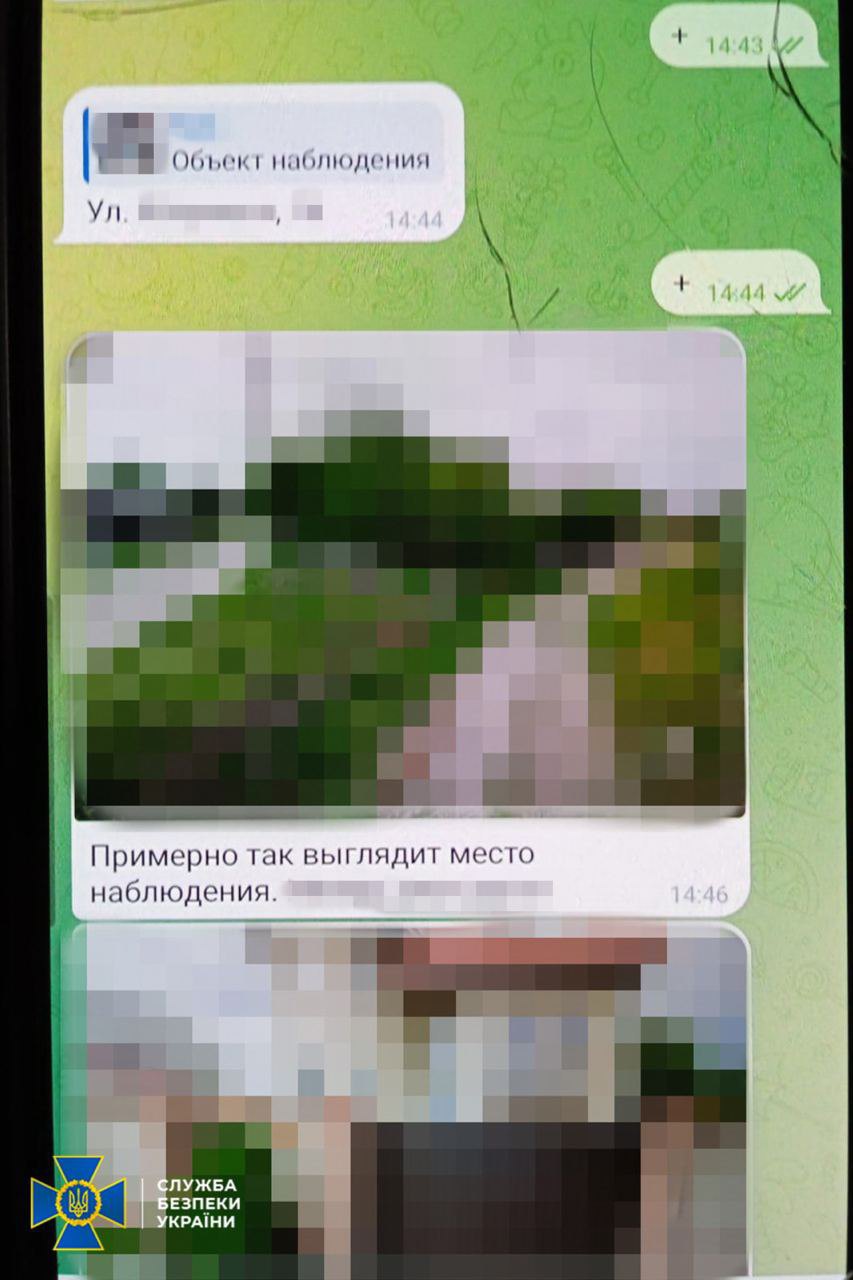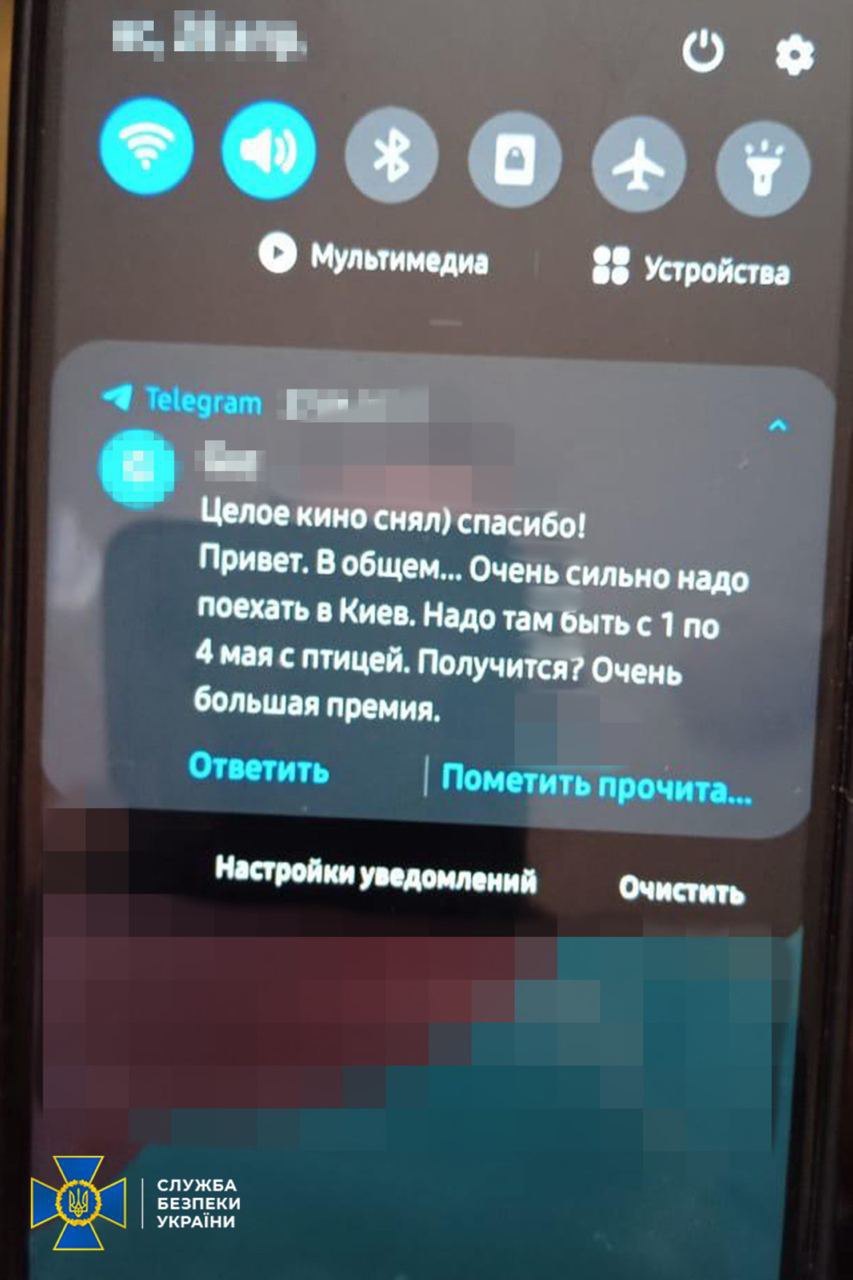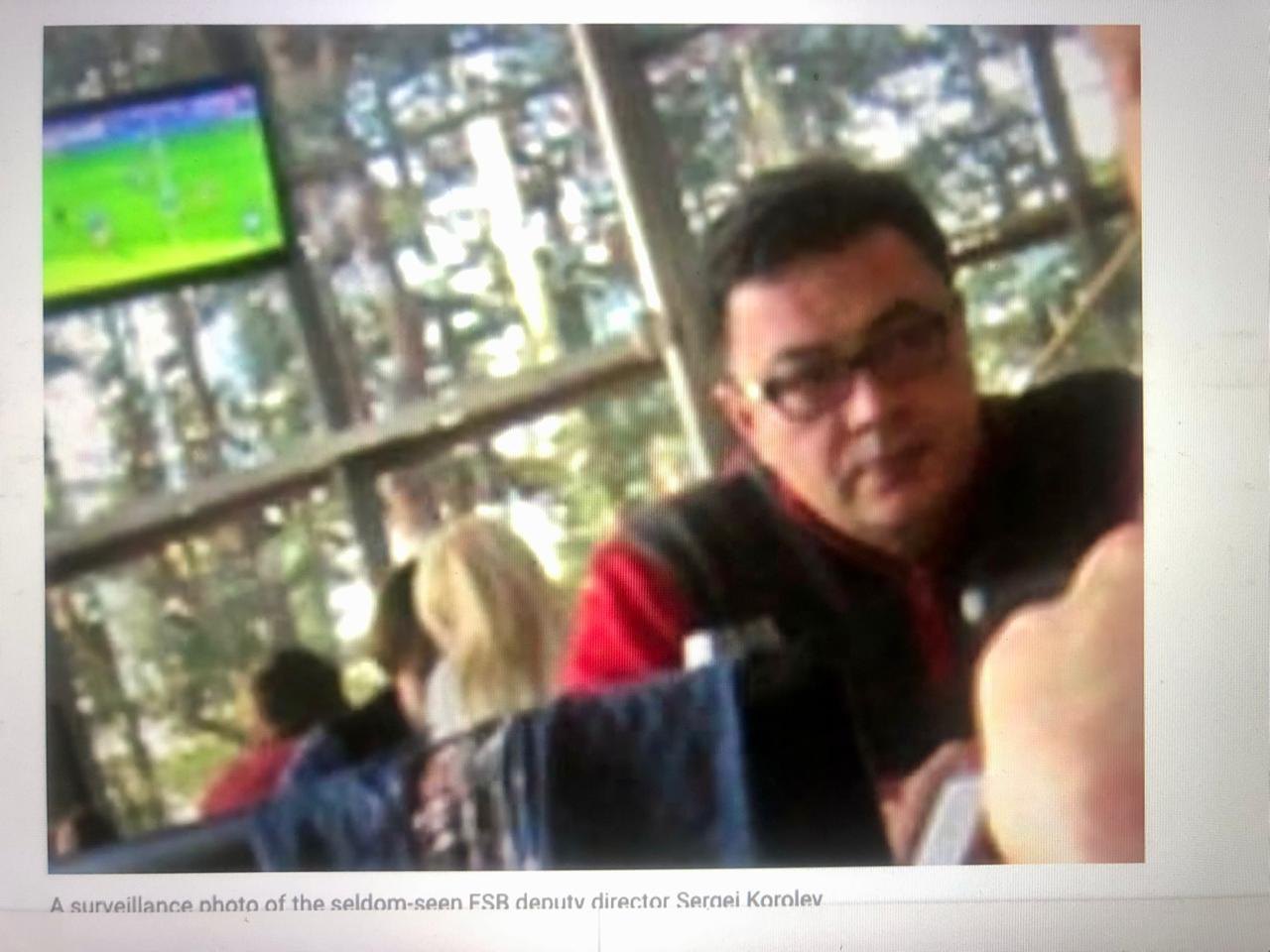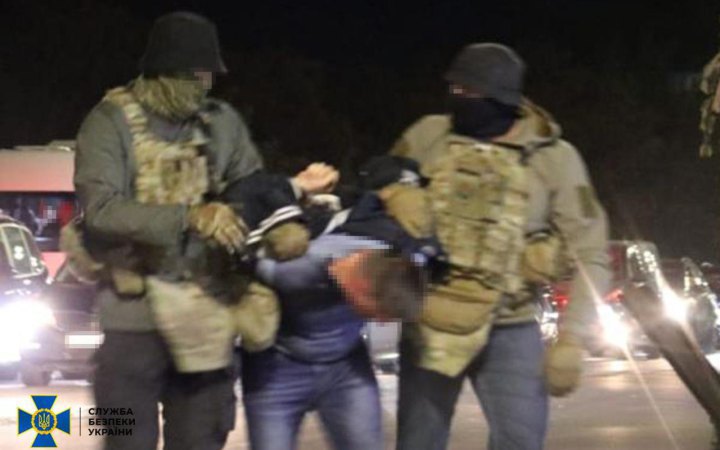Russian agents planned to assassinate the head of the Defence Intelligence of Ukraine, Kyrylo Budanov, in a coordinated attack using ballistic missiles and a drone.
This was reported by the British newspaper The Times, citing a senior SBU official.
According to him, the attempt on Kyrylo Budanov's life was to be carried out on 4 May 2024, and two colonels of State Protection Department, recruited by the Russian FSB, and the direct perpetrator of the attempt, a drone operator, were involved in its planning.
The latter set up a control point in Kyiv Region and received an order to transmit the coordinates of the motorcade in which the head of the Defence Intelligence of Ukraine was to travel.
"The Russians planned to launch a ballistic missile at these coordinates while the drone operator was in his hiding place, after which he was to launch the drone, film the effects of the attack for his handlers, and hit any survivors or those who came to the rescue with the drone with an anti-tank grenade attached to it," a Ukrainian counterintelligence officer told The Times.
Twenty minutes later, the Russians were to launch a second ballistic missile strike that would have killed emergency workers at the scene of the assassination attempt and concealed evidence of the FPV drone attack, he added.
For several months, the SBU had been monitoring the plotters of the assassination: two colonels of the State Protection Department, who are tasked with protecting senior Ukrainian officials, including the president, as well as the potential assassination attempt.
According to the SBU, the Russian agents planned to kill not only Budanov, but also President Zelenskyy and SBU Head Malyuk. In preparation for the assassination attempt, they brought rocket-propelled grenade launchers, a MON-90 anti-personnel mine, and an FPV kamikaze to Kyiv.
The first suspect, Colonel Andriy Huk of the State Security Department, is accused of having worked for the FSB since 2014. He allegedly recruited his colleague, Colonel Oleksandr Derkach, and passed on FSB orders to the group.
Huk's family, who had travelled to Europe, was devastated by his arrest, the source told The Times. "He lied to them all. His wife believed her husband was defending the country, the children believed their father was a Ukrainian hero," the officer added. The SBU intercepted the communication between the agent and his handlers, and the head of the service immediately informed Budanov. The assassination attempt was detained by a rapid response team, and the SBU launched an operation to arrest his alleged accomplices.
"Our goal was to arrest them simultaneously so that they could not inform each other, so that they would not escape," the officer said.
One of the colonels was at home in his Kyiv apartment, while the other was staying with friends in Sumy Region. To avoid a possible shootout, the SBU lured them out of their respective buildings by organising a surprise call to work. Disguised as regular police patrol officers, the special forces detained both men during a checkpoint stop. The first colonel was detained relatively easily. The second was more difficult: the man did not park, just rolled down his window and showed his service ID while keeping his hands on the wheel.
"To make the arrest, we chose a large, physically strong guy dressed in a police uniform. He pretended not to see the ID and came closer to the car," the SBU officer said. The special forces officer then quickly stuck his hand through the car window and opened the door, grabbing the colonel of the State Protection Department by the head. As the car was in motion, it immediately drove off. Other SBU officers stopped the car and pulled the man out of the car.
SBU officers also searched the apartments of both colonels. There, they found explosives and drone components hidden inside spare tyres and wood near the house, as well as a cache with a secret phone.


"In February 2022, the agent was tasked with identifying other state guards loyal to Russia and killing those loyal to Ukraine in order to take the president hostage," he said. "They were to force Zelenskyy to make a video statement of surrender and that there was no reason to fight - otherwise he would be killed.
One of the recruited colonels of the State Protection Department, allegedly Andriy Huk, suggested to his subordinates that they lay down their arms in the first days of the full-scale invasion.
"He told them: "We are not the armed forces, we have no special task to defend Ukraine, and I am not paid enough to set up a Brest fortress here," the SBU officer said.
His security colleagues then took his words as an emotional reaction to the invasion and ignored them, the SBU officer added.
Huk was born in Russia, which is a possible explanation for his alleged betrayal. In a video recording of his interrogation released by the SBU, he said that he received $3,000 a month from the FSB, as well as another $1,000 for travel to carry out their instructions. It is alleged that much of this was paid to him and his family during visits to Europe.
The second officer, Derkach, was simply involved for the money and hoped that the more senior Huk would help his career prospects, the SBU officer said.According to The Times, the attempt to kill Budanov demonstrates an aggressive shift in the FSB's role in the war against Ukraine and its allies, from intelligence gathering to sabotage and assassination. Previously, such activities were dominated by Russia's military intelligence agency, the DIU.
The architect of the FSB's new aggressive strategy, according to the newspaper, is the agency's first deputy director, Serheiy Korolyov, a Putin favourite who is known to have deep ties to the Russian mafia.
The Times also published surveillance photos of FSB deputy director Serhei Korolyov, who avoids publicity.









